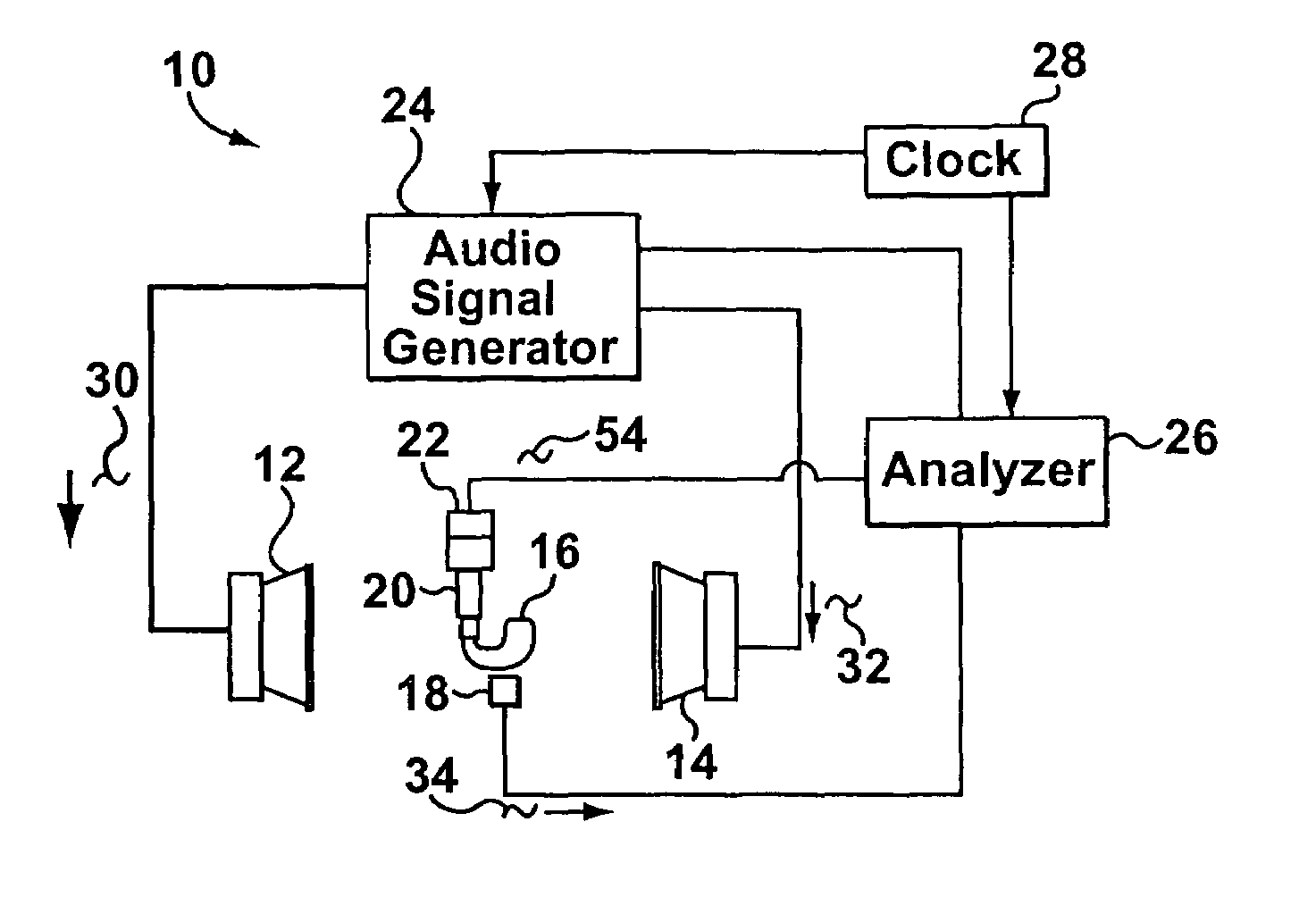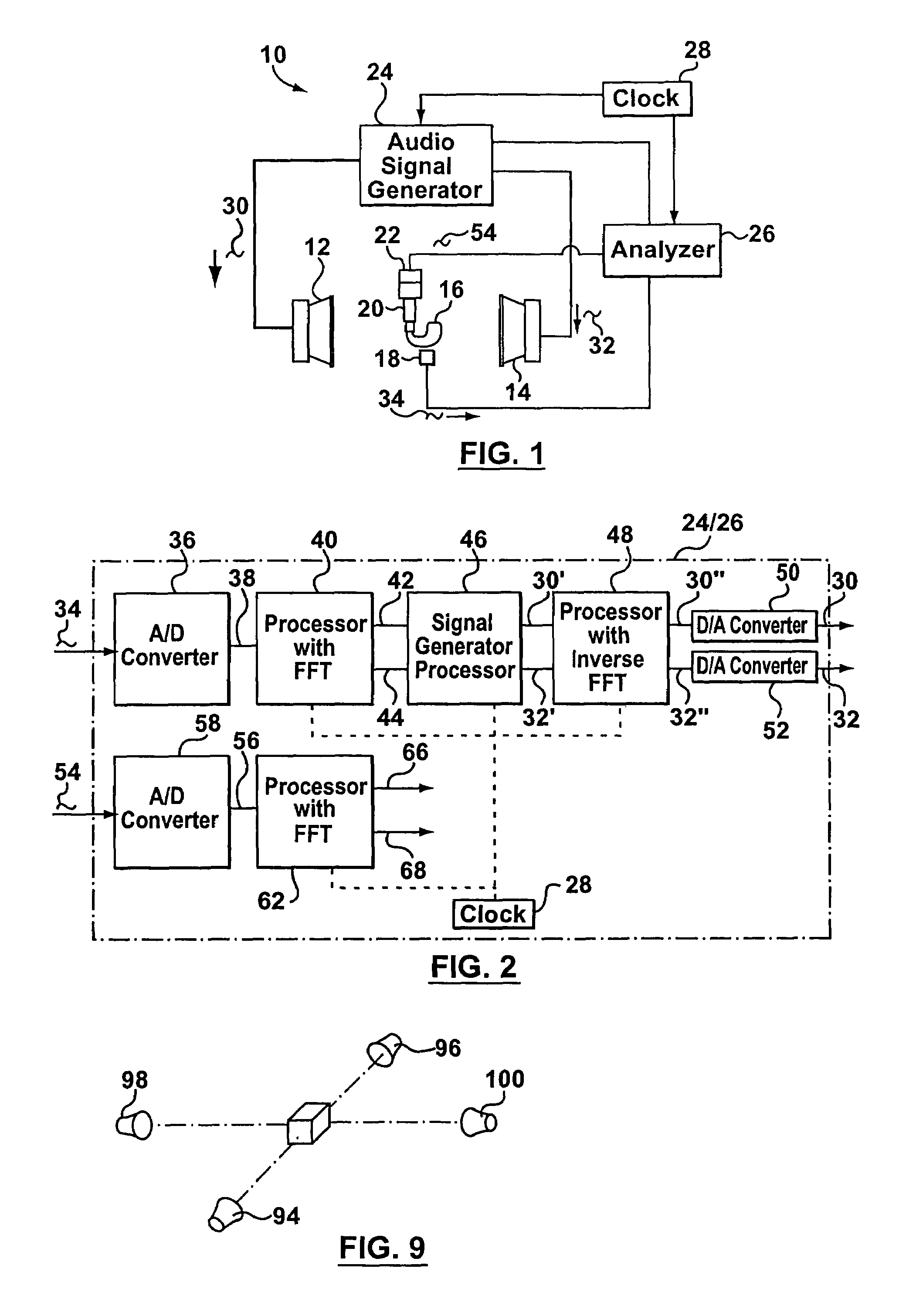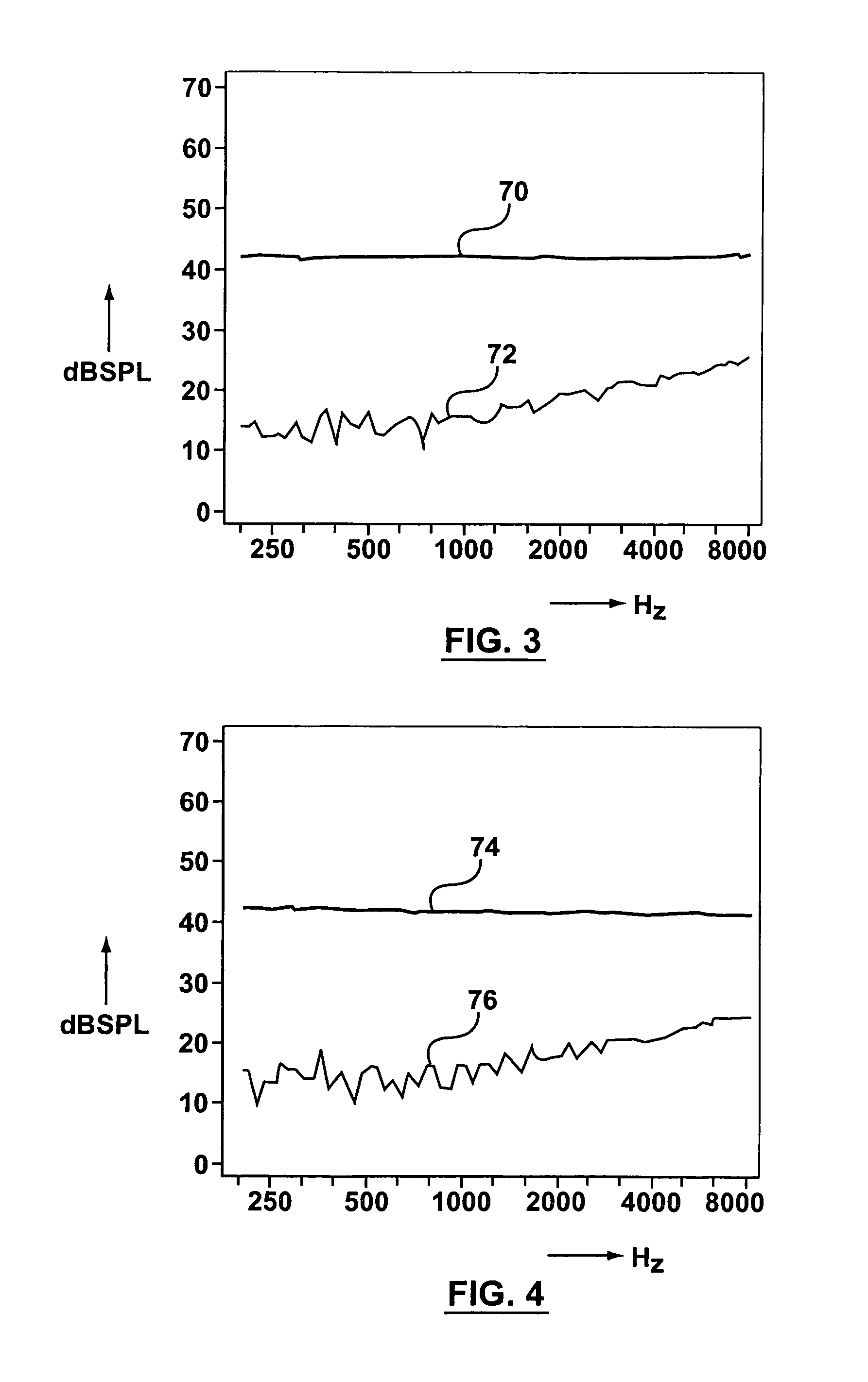Directional hearing aid tester
a hearing aid and directional technology, applied in the direction of material solid analysis using sonic/ultrasonic/infrasonic waves, instruments, etc., can solve the problem of impracticality for most hearing aid dispensers to use, rear-facing responses will introduce significant errors, and use of anechoic test space presents additional problems. to achieve the effect of accurate testing of the directional response of a hearing aid
- Summary
- Abstract
- Description
- Claims
- Application Information
AI Technical Summary
Benefits of technology
Problems solved by technology
Method used
Image
Examples
Embodiment Construction
[0027]The preferred embodiment of the invention will be described with reference to testing a directional hearing aid. However, the method and apparatus of the invention may be used with other directional-responding acoustical devices, e.g. microphones, and sound recorders for various applications.
[0028]As shown in FIG. 1, a test space 10, which can be either an acoustically-treated anechoic space or a non-treated echoic space, contains two spaced apart loudspeakers, namely a first speaker 12 and a second speaker 14. The two loudspeakers are shown as being in the same plane and facing each other, but this configuration is arbitrary and depends on the performance characteristic which is desired to be measured.
[0029]The hearing aid 16 to be tested is shown midway between the loudspeakers 12, 14, but the hearing aid 16 can be placed in any desired orientation. Located closely adjacent the hearing aid 16 are a controlling microphone 18 (used for a purpose to be explained), a conventiona...
PUM
 Login to View More
Login to View More Abstract
Description
Claims
Application Information
 Login to View More
Login to View More - R&D
- Intellectual Property
- Life Sciences
- Materials
- Tech Scout
- Unparalleled Data Quality
- Higher Quality Content
- 60% Fewer Hallucinations
Browse by: Latest US Patents, China's latest patents, Technical Efficacy Thesaurus, Application Domain, Technology Topic, Popular Technical Reports.
© 2025 PatSnap. All rights reserved.Legal|Privacy policy|Modern Slavery Act Transparency Statement|Sitemap|About US| Contact US: help@patsnap.com



